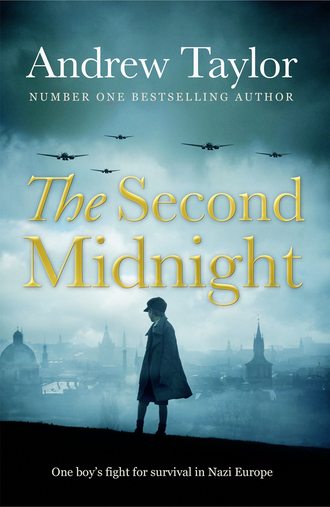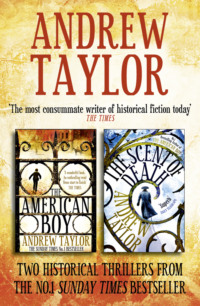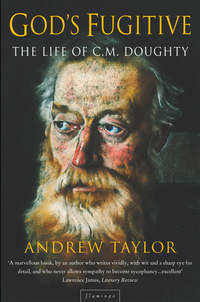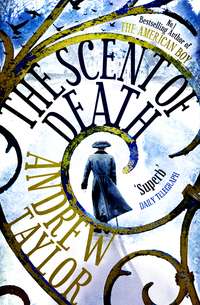
Полная версия
The Second Midnight
‘Madame, I must ask you to leave.’ Kendall backed away and took refuge on the far side of the bed. These foreigners were sex-mad. ‘I insist that you go,’ he pleaded. ‘Josefina, please.’
Madame Hase stood up; she was lopsided because one of her slippers had fallen off in the struggle. She refastened her dressing gown, found the missing slipper and picked up her candle. Kendall hastened to open the door for her.
‘You must understand, Josefina,’ he said as she passed him with her face averted. ‘I am married; I am here on duty—’
‘You English.’ She looked up at him. The candle turned the tears in her eyes to glints of fire. ‘You have no romance in you.’
Dansey lowered himself with great care into the armchair nearest the fire. ‘Just imagine I’m not here.’
‘That won’t be easy,’ said Michael drily. ‘Would you like a drink?’
‘No, thank you. If you have to introduce me, call me Mr Hayward. Has the report from Moravec come in yet?’
Michael nodded. ‘The DB can confirm at least half of the information from their own sources. They seem to think the rest is at least plausible.’
‘But none of it is particularly significant?’
‘Well, no. It identifies a few names which were new to the DB on the provisional regional committees. There’s a sort of shopping list which starts with gold and ends with tanks. But there’s no firm information about what the Bolshies plan to do.’
‘That is probably because they don’t know themselves.’
Dansey fell silent and glanced round the small sitting room. Michael cringed inwardly: this was the first time Dansey had visited his rooms in Dover Street and Michael felt that his possessions – and hence his private self – were unfairly at the mercy of Uncle Claude. He wished he had removed his own paintings to the bedroom. But that would have been worse: Dansey would have noticed the lighter patches on the wallpaper and drawn his own conclusions.
He was suddenly ashamed of the shabby, comfortable room with its oversized furniture. The furniture was part of his past – he had kept back a few pieces from the sale after his mother’s death – but most of it looked ridiculous here.
‘Extraordinary,’ Dansey said. He was looking at a painting over the sideboard. First he looked through his glasses and then over the top of them. ‘Not one of yours, I hope?’
‘No, sir. Chap called Chagall.’
‘Glad to hear it. I’ve known children with a better sense of perspective. And I wonder why he found it necessary to give the man green hair.’ Dansey changed the subject without warning, or even altering his tone. ‘How’s Kendall taking it?’
‘Better than I’d expected. Of course he thinks the information he brought out was vital – perhaps that’s some consolation. I think I was more upset about the boy than he was. He’s one of these people who keep their emotions very tightly battened down.’
‘I hope he doesn’t think we’re going to send him back by the next train to collect the boy? You’ve made that clear?’
Michael got up to fetch the cigarette box from the sideboard. When he replied, he was safely out of Dansey’s sight. ‘Not in so many words, sir. I thought I’d leave it until today.’
Dansey refused a cigarette. ‘That was foolish of you.’
‘I hadn’t the heart to do it.’
Kendall had come off the boat train at Victoria yesterday afternoon. The little man had been wearing a baggy Hungarian suit; he had no luggage, apart from the contents of his pockets; he had so little money left that Michael had had to give him the cab fare home. His return journey from Prague had taken him the better part of a fortnight. Despite all he had gone through, he had been pathetically happy – full of himself like a dog who believed he had earned his master’s approval.
‘I hope your heart’s in better shape this afternoon.’ Dansey glanced at his watch. ‘He’s late.’
At that moment, they heard the doorbell. A moment later, Mrs Granger, Michael’s landlady, showed Kendall into the room. He bustled in, shook hands with Michael and looked enquiringly at Dansey.
‘Mr Hayward,’ Michael said with a wave of his arm. ‘A colleague of mine.’ A spurt of mischief made him add: ‘Just imagine he isn’t here.’
Kendall was about to hold out his hand but Dansey confounded the move by giving him the slightest of nods and becoming lost in contemplation of the fire.
When he had settled his guest in a chair and given him a cigarette, Michael produced an envelope from his inside pocket. He handed it to Kendall.
‘It’s rather more than the sum we agreed on,’ he said awkwardly. ‘You’ve done a very good job. Had I known it was going to be so difficult we wouldn’t have asked you to go.’
And I certainly wouldn’t have suggested you took the boy with you.
Kendall stuffed the envelope in his pocket without looking at its contents. ‘Only too glad to be of use,’ he mumbled. ‘Hope you don’t mind that I had to pretend I was a – ah – senior officer. It was the only way to get those chaps to cooperate.’
‘Not at all.’
It made it all the worse, Michael thought, that Kendall had done so well. He had been recruited as nothing more than a courier on the lowest of levels, but he had had to deal with problems which would have taxed an experienced agent. It was hardly his fault that his job had lost what little importance it originally had when Moravec arrived in London.
‘When do you want me to go back?’
‘Captain Kendall.’ Michael paused, wishing Dansey was at the other end of London. ‘As a matter of fact, it would be better if you didn’t go back. Your face is known, you see. You couldn’t go back under your own name because there’s no exit stamp on your passport. The Gestapo has almost certainly circularized your description. Quite frankly, your return could jeopardize the whole operation – destroy the value of the work you’ve done for us.’
Kendall sat there with his mouth open as he grappled with the meaning of Michael’s words. He sagged in the chair: the jauntiness had been sponged out of him.
‘But what about Hugh – my son?’
Michael glanced at Dansey but Uncle Claude was still staring at the fire. ‘We’ll tell the Embassy about him. You can let us have his address? I’m sure they’ll get him home almost as soon as you could. It’ll have to be carefully handled, of course.’
Kendall nodded, apparently satisfied. Michael felt a sudden revulsion for the man’s stoicism. Did his warped sense of patriotism obliterate his affection for his son? It was uncanny: Kendall was less concerned about his son than about the fact that His Majesty’s Government didn’t propose to send him back to Prague.
Kendall scribbled Spiegel’s address in his pocket book, tore out the page and passed it to Michael.
‘Then there’s my luggage,’ he said. ‘Can the Embassy send someone round to the Michalov Palace? It’s only just around the corner.’
‘Of course.’ Michael stood up, hoping that Kendall would take the hint. ‘One of our people will telephone you in the next few days and arrange a meeting. We’d like to get your firsthand impressions of the invasion in detail.’
But Kendall remained in his chair. ‘I notice a lot of changes here since I got back. Even Chamberlain seems to realize that war’s inevitable. Does this mean you’ll be expanding your permanent establishment?’
‘It’s a possibility.’ Michael moved slowly towards the door. It was more than a possibility: he knew for a fact that both SIS and Z Organization were actively trawling for recruits – and had been since Munich.
Kendall got to his feet. ‘Then I wonder if you’d consider myself and Stephen – my eldest boy. He’s a bright lad – and good at languages too. St Paul’s, you know.’
‘I’ll mention your name, of course. Naturally I can’t promise anything – it’s not my department.’
Michael showed Kendall out. When he got back to the sitting room, he found Dansey jabbing the coals with a poker.
‘I think I’ll take that drink now, Stanhope-Smith.’
Michael crossed to the sideboard. ‘What do you think of Kendall’s offer?’
‘I think we can get along quite well without the services of Captain Kendall or his wretched son. Even if he has been to St Paul’s. We may be moving on to a war footing but there are limits.’
Michael handed Dansey a small whisky and soda. ‘About the other son: shall I approach the Embassy through the FO or get on to SIS?’
‘Neither.’ Dansey finished his drink in a single swallow and wiped his moustache with his handkerchief. ‘Now I must be off. If necessary you can get hold of me through the PM’s office.’
‘But we can’t just abandon the boy.’
‘Why not? He’s of no importance. Kendall’s not going to make a fuss, especially if he thinks you might give him a job. Even if he did make a fuss, we could muzzle him with the Official Secrets Act.’
‘But we do have a moral obligation—’
‘Our moral obligations, as you choose to put it, lie elsewhere, Stanhope-Smith. Getting that boy out would be a purely sentimental gesture. I’m sorry, but the risk is unacceptable. The FO wouldn’t cooperate for a start: they’ve had to tread very carefully in Prague for the last fortnight. And I’ve no intention of compromising either SIS or Z. I wouldn’t be at all surprised if the Germans have already got the boy and his communist hosts under observation.’
‘We could send in a nursemaid to bring the boy out – an amateur like Kendall.’
Dansey picked up his hat and coat. ‘When I need your advice I shall ask for it. Don’t bother to come down: I’ll see myself out.’
When Dansey had gone, Michael kicked the sofa until the pain forced him to stop. He had known before that he was involved in a dirty business; but this was the first time that Dansey had rubbed his nose in it quite so hard.
For a moment he toyed with the idea of resignation. But that would rebound on his godfather’s head, especially at a time like this when the country was readying itself for war. Michael tried to ignore the thought that it would also be financial suicide: his rent was due tomorrow, on the first of the month; both his tailor and his wine merchant had presented him with extraordinarily large bills; and Betty Chandos was proving an expensive hobby.
But he had to do something – anything to prove to himself that he had not sold his soul entirely to Uncle Claude. He picked up the telephone and dialled the number of a house in Queen Anne’s Gate. He used the private line to the flat, rather than the switchboard number for the rest of the building. Dansey would be furious, but with luck he wouldn’t hear about it until it was too late.
‘May I speak to Admiral Sinclair? It’s Michael Stanhope-Smith.’
He breathed a sigh of relief when the secretary said his godfather was in. If he didn’t do it now, he suspected that he would never find the courage to try again.
‘Uncle? It’s Michael. I’ve found two possible new boys for you. I wonder if you could let them know downstairs.’
Five
The bullet, which was fired from above, punched into the crown of Dr Spiegel’s head at an oblique angle. The impact blew away the back of his skull.
Unable to move, Hugh gaped down at his tutor. Spiegel sprawled on the cobbles. What was left of his head pointed towards the Vltava which flowed, grey and swollen with the autumn rain, towards the Manes Bridge. Around his head was a red halo that grew larger every second. There were white splinters and grey islands in the blood.
It made it worse that there had been no intermediate state. One moment Spiegel had been hurrying Hugh away from the crowd outside the Clementinum; the next moment he simply wasn’t there. Nothing else had changed: the students were still shouting, ‘Germans go home!’ while the men in grey were on the outside of the crowd, methodically controlling the civilians’ movements, like dogs among sheep.
‘Halte! Komm doch her!’
A soldier in helmet and greatcoat clattered down the steps from the road to the embankment. He carried his rifle across his chest. Behind him there were three more shots and someone began to scream.
The scream unlocked Hugh’s muscles. He began to run in the direction of the Charles Bridge. The soldier shouted again but made no move to follow. After fifty yards, Hugh glanced back: the German was standing over Dr Spiegel, his arms flung wide and his body arched in a parody of a bow to his victim’s corpse.
Twenty yards later, Hugh realized what he had seen: the murderer was being sick.
He ran on to Narodni Street. The trams were still running and he was lucky enough to reach the stop just as a number seven came over the bridge. He sat by the exit, trying to control his breathing. It had become desperately important to look normal. He was Rudi Messner, a Czech-Hungarian boy who was blessed with a German surname and ancestry. He lived with his old Uncle Ludvik – who was fortunate enough to be half German – in Zizkov. Uncle Ludvik’s flat had been his home since his parents died in Budapest. He was going home.
It was only when the tram turned into Vaclavske Namesti that he realized that he no longer had a home. Within an hour or two the Gestapo would have identified Dr Spiegel and arrived at the flat. The Rudi Messner story and Hugh’s command of Czech were adequate for routine security checks but they would never stand up to the Gestapo.
Hugh got off at the next stop. The tram deposited him within a stone’s throw of the Petschek Palace, a bleak modern building that had once housed a bank. Now it was the headquarters of the Prague Gestapo.
The only place he could go to was Old Town Square; and the quickest route would lead him past the Petschek Palace, if he chose to go on foot. He rummaged through his pockets, finding a handful of small change. It would be wiser to save what little money he had for emergencies. He thrust his hands in his pockets and walked fast with his head down, like someone with somewhere to go.
In Old Town Square Madame Hase rented a narrow but immensely high house on the north side, near the monument to John Huss. Dr Spiegel had taken him there one afternoon in June, when his father’s money ran out. Madame Hase had told him that there was no more money and that it didn’t look as if his father would be coming back. He didn’t expect she would welcome him, but perhaps she might be prepared to help. If he didn’t find shelter for the night, the police would pick him up.
It was nearly five o’clock by the time he reached the square. There were soldiers and police on every corner. Two box-like armoured cars were parked with their engines still running outside the Old Town Hall.
Madame Hase’s front door was at the top of a small flight of steps. Hugh rang the bell and waited. He fixed his eyes on the doorknob, willing it to turn. At any moment someone might ask him for his papers.
Bolts rattled and the door swung back a few inches. Madame Hase herself peered through the gap; in June an elderly housekeeper had answered the door. She wore no make-up and looked much smaller; Hugh realized that for the first time he was seeing her without high heels.
‘What is it?’ Her eyes slid past him to the soldiers in the square. Then she saw who it was and the door began to close. ‘Go away,’ she muttered. ‘There is nothing for you here.’
In his desperation, Hugh acted without thinking. He jammed his foot over the threshold and pounded on the door.
Once again the door opened to the limit of its chain.
‘Don’t do that, for God’s sake.’ In her panic she spoke in Czech. ‘You’ll draw attention to us.’
Hugh had a flash of inspiration. ‘Then let me in. Or I’ll shout until someone comes to see what’s happening.’
Madame Hase’s face tightened with fear. ‘All right. Wait.’ She unlatched the chain and opened the door just widely enough for Hugh to slip inside. ‘Down the stairs. Quickly.’
He found himself in a basement kitchen which for an instant reminded him of Mrs Bunnings’ domain in Wilmot House. There were books and newspapers on the big scarred table. A tap dripped into the sink in the corner. A single armchair had been drawn up to the stove.
Madame Hase came in after him and closed the kitchen door behind her. He noticed that there were streaks of silver in the black hair.
‘Why aren’t you in England?’ she snapped.
‘After we saw you in the summer, Dr Spiegel took me to the Embassy. But the guards wouldn’t let me in because I didn’t have a passport. I came here on my father’s, you see.’
She sank into the armchair. ‘Where have you been all this time?’
‘At Dr Spiegel’s. There was nowhere else.’
‘The man always was a fool. Where is he now?’
‘He’s dead.’ Hugh clenched his hands behind his back. ‘A soldier shot him this afternoon. It was near the Clementinum – the students were protesting and we were trying to get away.’
Madame Hase nodded towards the radio. ‘It was on the news just now. The SS are pleased: it’s given them an excuse to shut down the universities and polytechnics.’
She spoke calmly, as if the events they were discussing were remote from them both. Hugh wondered if she had heard him. He tried again.
‘Dr Spiegel was killed today.’
‘So? We shall all die soon. I think the Gestapo will come tonight.’
Hugh frowned. ‘How do you know?’
‘The riots. The Germans will use them to justify a purge. They always do. Many people will disappear in the next few days. Communist intellectuals will be among the first.’
‘Can’t you escape?’
Madame Hase shrugged. ‘Where? How? The Provisional Committee might have helped – you remember Jan and Bela? But they turned against me when your father did not keep his promises. They think I’m a traitor. No one wants me.’
To Hugh’s embarrassment she began to cry. She wept with abandon, making no attempt to control or conceal her tears. Hugh sidled nearer the stove.
Eventually the sobbing died away. She looked up at Hugh, her lips still trembling.
‘I could have been a heroine, you know. But no one would let me. I made my housekeeper go – she was Jewish. My mother was half-Jewish. Oh, my God, my God—’
‘Madame Hase,’ Hugh said abruptly. ‘May I stay here?’
She emerged from the private world of her fear. ‘If you want. It does not matter to me. But the Gestapo will find you when they come tonight.’
Madame Hase was wrong: the Gestapo did not come.
Конец ознакомительного фрагмента.
Текст предоставлен ООО «ЛитРес».
Прочитайте эту книгу целиком, купив полную легальную версию на ЛитРес.
Безопасно оплатить книгу можно банковской картой Visa, MasterCard, Maestro, со счета мобильного телефона, с платежного терминала, в салоне МТС или Связной, через PayPal, WebMoney, Яндекс.Деньги, QIWI Кошелек, бонусными картами или другим удобным Вам способом.








